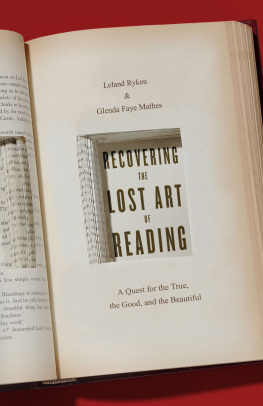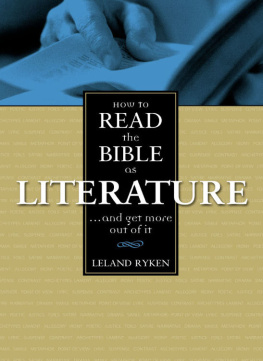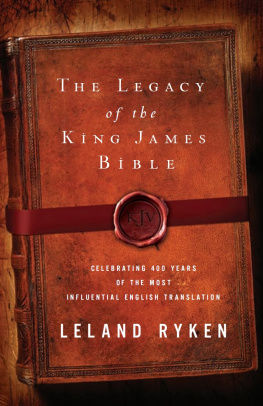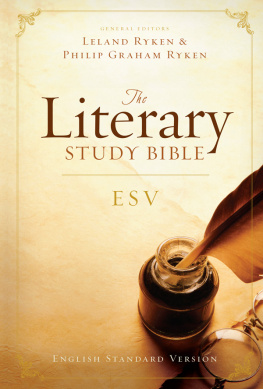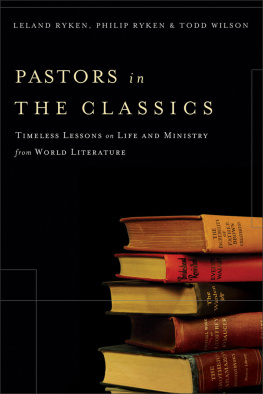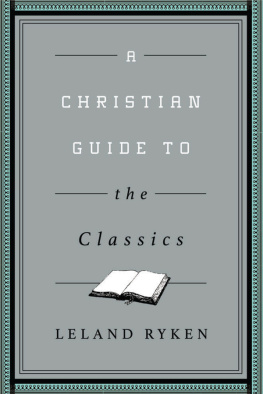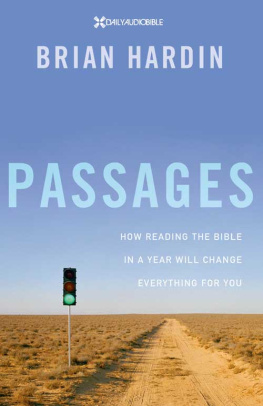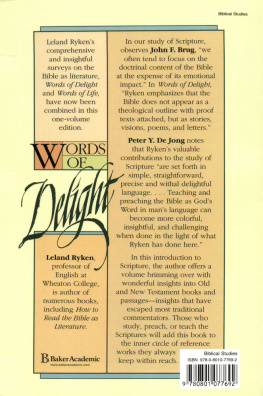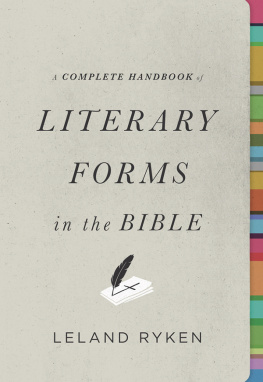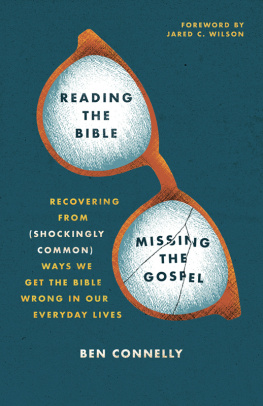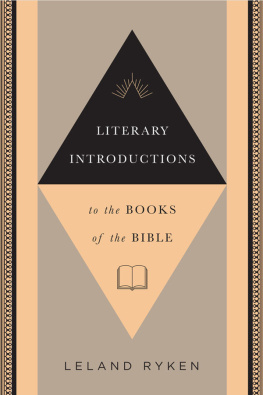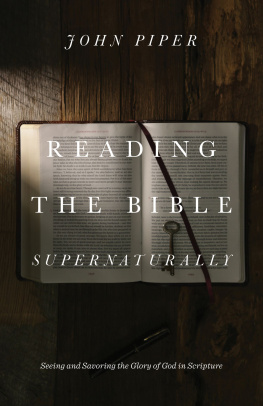Table of Contents
Landmarks
Part 3
Recovering the Art of Reading
In July of 1976, my husband, David, and I (Glenda), celebrated the U.S.s bicentennial by traveling to visit friends in Michigan via motorcycle. When I asked about the unusual pictures on the calendar in their apartment, my friend explained they depicted scenes from the books of J. R. R. Tolkien. Although I had been a voracious reader from childhood, this was the first Id heard about this author and his books. The revelation of missed literature swept over me like a rogue wave. Before many more years passed, I read for the first time, In a hole in the ground there lived a hobbit.
As I read those words, something extraordinary happened. My tiny trailer home in Pella, IA, faded away as my consciousness magically transported to Bag End in Middle Earth. The journey so enchanted me, I flew there and back again every winter for nearly thirty years. This is the enduring power of transport, one of literatures chief delights.
Having defined literature and discussed its functions in the previous two chapters, this chapter completes our defense for reading literature by exploring the values and pleasures it offers.
As we describe these joys, we believe something will resonate with every reader. Committed readers will recognize these pleasures as old friends. Other readers will find some joys familiar, while still other readers will be newly introduced to these delights. We encourage all readers to join in literatures party. We invite those who feel as if theyre on the outside, looking in, to enter the warmth and fun. No readerno matter how reluctant or unconfidentis barred from literatures pleasures.
Transport
Reading a work of literature begins with a magical moment of transport. This transport includes both a leave-taking from our ordinary world and an arrival in an imaginary one, but well focus first on the departure. As soon as we become engaged in a story or poem or drama, our everyday concerns and physical surroundings recede from our consciousness. This initial wonder is therapeutic to the human spirit. There are many joys in reading literature, but transport alone makes it worthwhile for even the most reluctant reader.
Do other types of reading also transport us in this way? Screen reading rarely does. When we read on a digital device or computer monitor, we do not leave concerns behind but remain very much connected to them. Physical books are the primary vehicle for providing readings delight. But not all books are created equal. Reading a history or biography or travel narrative may remove us from our world of ordinary concerns, but reading literature provides a more unique and complete transport.
Several authors and scholars have communicated this concept in helpful ways. Emily Dickinsons short poem encapsulates the power of transport:
There is no Frigate like a Book
To take us Lands away,
Nor any Coursers like a Page
Of prancing Poetry.
This Traverse may the poorest take
Without oppress of Toll
How frugal is the Chariot
That bears a Human soul.
This poem expresses three ideas about literatures transport: (1) its power surpasses all rivals, (2) it is free for the taking to anyone who wants it, and (3) the transaction involves nothing less than the human soul.
Self-forgetfulness is one benefit accompanying transport. People need regular times when we move beyond preoccupation with ourselves and our concerns. Readings leave-taking provides such release.
that is, out of the enclosing world around and inside us. The very act of reading admits us to a particular state, which in itself is pleasurable and beneficial, quite apart from the content of what we are reading.
What does literature offer? It offers the power of transport, a holiday of the imagination and spirit.
Entering an Imagined World
As we leave our physical and mental surroundings, we simultaneously arrive in an alternate world that is merely imagined. We cannot touch it with our hands or see it with our eyes. Its specific qualities depend on the genre and literary work we are reading. The broad genre most obviously creating this world is narrative or story, which includes sub-genres such as fiction and creative nonfiction. But other genres conjure imaginative worlds as well. When we read a devotional poem by George Herbert or a nature poem by William Wordsworth, we inhabit a world the poem itself creates. Even when reading an informal essay, we follow the authors reflections and the scenes or events generating them.
The twofold action of transport cannot happen without the existence of an alternate world. Being aware of the transaction allows us to more willingly give ourselves to the journey. Some people who do not see the point of literature assume its just like everyday life. While literature is life at a certain level, it is not just like real life . Literature achieves its effects by temporarily removing us from life and placing us in another world.
Encountering something new is one of the things literature offers us, accomplished by activating our imagination to dwell in an alternate world.
As we situate ourselves in a different world, we find both the familiar and the unfamiliar. No literary work can exist without reflecting life in the real world. A landscape in a fantasy may be something wed never find in our world, but it is still a landscape. Conversely, we might think a short storys detailed description of an inner-city street scene is like a photograph of the setting, but it is not. A scene in a piece of realistic fiction is more heightened, more simplified, and more distilled than we would experience when walking through it.
Literature offers a concentrated version of a chosen subject. It defamiliarizes a subject in a way that helps us see it more clearly than we do in real life. To cite an example from the sister art of painting, a still life of fruit in a bowl makes us notice the fruits properties in a new and heightened way. As we fix our gaze on the painting, we are captivated by three things: the artists skill in producing what we are looking at, the luminous clarity with which an aspect of our experience is held before us, and the novelty of seeing real life from an unfamiliar perspective. Those same three things engage us when reading a work of literature. They are what literature offers us: the creative skill of the author in making a recognizable picture of human experience and presenting it in an unfamiliar pose.
Life as we live it is often chaotic. Literature offers an imaginary world in which the features of life stand silhouetted with clarity.
The Return Journey
Weve discussed what literature offers by looking at Our journey begins with a leave-taking from everyday life. While we are reading, we reside in an imagined world. Eventually we put the book down and return to the life we are living. What does literature offer when we make the return journey?
If we have been reading something good and satisfying, we experience a feeling of disappointment as we close the book. Such disappointment is revealing. It tells us that the leave-taking and temporary residence in an imaginary world have been meaningful and desirable, in itself a tribute to the value of reading.
The order authors impose on life is the story or poem or essay itself, including its world of the imagination. This imaginative world is not only a beneficial holiday from life, but it is also a roadmap that may help us chart our course in daily life.
What kind of equipment do we bring back from our excursions into the golden realms of literature? In answer, we will describe the ideal reading experiencea potential experience to which we need to contribute, not something that happens automatically.
The first thing we possess after an optimal reading experience is clarity of vision. As the author says look and points, we as readers stare at that aspect of life. If a writer has gotten it right (and literary writers almost always do in terms of observing and recording life accurately), we feel that we see our lives and world more clearly than we did before. Seeing life accurately gives us a confidence for negotiating life that we would otherwise lack.

